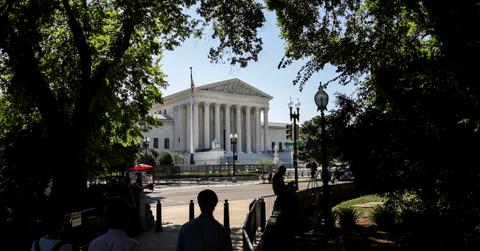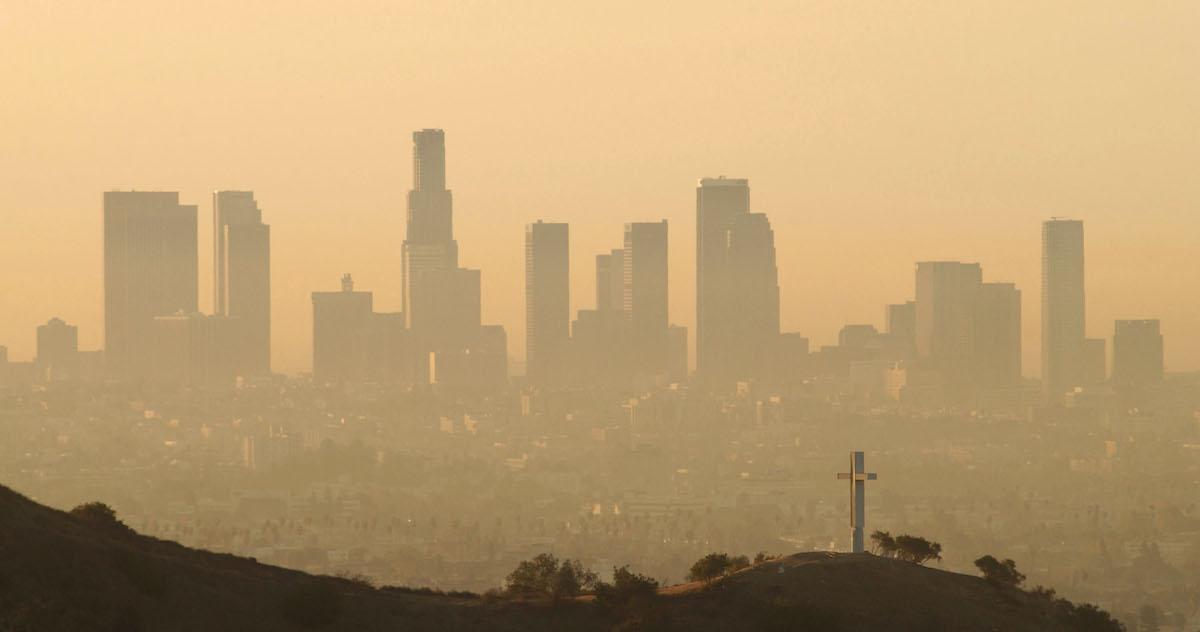SCOTUS Has Ruled Against the EPA, Reducing the Agency’s Powers to Limit Carbon Emissions
Published June 30 2022, 11:39 a.m. ET

Environmentalists around the nation have been eagerly awaiting the Supreme Court to make a decision on West Virginia v. EPA — and on Thursday, June 30, SCOTUS finally made its ruling. Just days after devastating millions of U.S. residents by overturning Roe v. Wade, the nation’s highest court has ruled against the Environmental Protection Agency in this case.
As explained by The New York Times, West Virginia v. EPA set out to determine if, under the Clean Air Act, the EPA should be able to set new rules across the energy industry.
"Congress did not grant EPA in Section 111(d) of the Clean Air Act the authority to devise emissions caps based on the generation shifting approach the Agency took in the Clean Power Plan," SCOTUS wrote in the ruling.
Basically, this ruling will significantly limit the EPA’s powers when it comes to regulating power plants’ carbon emissions, due to a majority of the Supreme Court justices’ “narrow reading” of the Clean Air Act, as per SCOTUSBlog.

John Roberts delivered the opinion of the Court, which was supported by fellow conservative justices Samuel Alito, Amy Coney Barrett, Neil Gorsuch, and Brett Kavanaugh. Stephen Breyer, Elena Kagan, and Sonia Sotomayor — the three liberal justices on the court — all dissented.
Justice Kagan wrote a powerful dissent, which went on for more than 30 pages
“The subject matter of the regulation here makes the Court’s intervention all the more troubling,” Kagan wrote at the end of her dissent.
“Whatever else this Court may know about, it does not have a clue about how to address climate change. And let’s say the obvious: The stakes here are high. Yet the Court today prevents congressionally authorized agency action to curb power plants’ carbon dioxide emissions,” Kagan continued.
“The Court appoints itself—instead of Congress or the expert agency — the decision maker on climate policy. I cannot think of many things more frightening. Respectfully, I dissent.”
Many climate advocacy groups were quick to disagree with the ruling, such as Sunrise Movement.
“Decisions like WV vs. EPA make it clear just how much the system is rigged against us,” Sunrise Movement wrote on Twitter. “A Supreme Court that sides with the fossil fuel industry over the health and safety of its people is anti-life and illegitimate.” The climate organization added that this ruling has “gutted the EPA’s ability to keep us safe from toxic pollution under the Clean Air Act.”
A number of politicians also shared their disagreement with the ruling.
“Today's decision by the Supreme Court is a major setback in our fight against climate change,” New York Governor Kathy Hochul stated. “By limiting the Environmental Protection Agency's ability to protect our environment, the Court is taking away some of the best tools we have to address the climate crisis.”
“The Supreme Court sided with the fossil fuel industry, kneecapping the federal government’s basic ability to tackle climate change,” California Governor Gavin Newsom said in a statement.
This ruling is going to make it that much harder for cities, states, and the U.S. as a whole to hit emissions targets in a timely fashion, and will therefore prolong the climate crisis. There is truly no time to waste when it comes to the climate emergency, and rulings like this will only perpetuate the many environmental and public health issues climate change brings.
You can learn more about the details of West Virginia vs. EPA here.